From her teaching and research experience at university, Dr. Nguyen Viet Huong, Golden Globe Science and Technology Award, Outstanding Young Vietnamese Face 2024, realized that the desire to acquire knowledge, the spirit of daring to think, daring to do, daring to accept risks to innovate and create is blooming in a large part of young people.
However, for those aspirations to crystallize into clear results, becoming the nation's intellectual and technological assets, a synchronous ecosystem is needed: consistent policies, open mechanisms, focused and key investments, modern research infrastructure and especially the formation of a scientific culture and a culture of academic integrity.
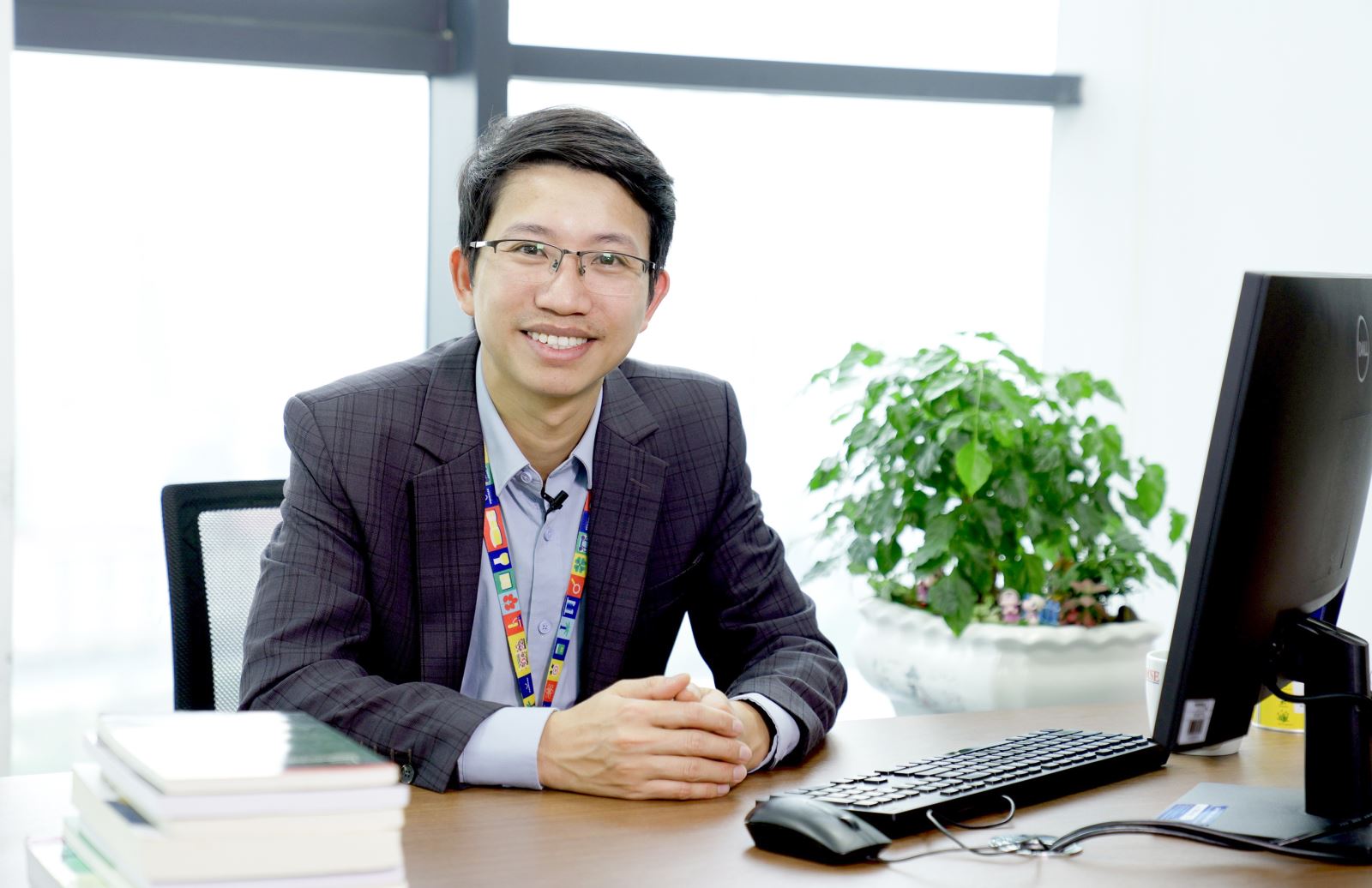
Contributing to the draft documents of the 14th National Party Congress, Dr. Nguyen Viet Huong proposed a number of policies and solutions to create a breakthrough in science, technology, innovation and national digital transformation from the perspective of a young scientist who is directly involved in training the next generation.
Human resource development by strata
To create a breakthrough in science and technology, according to Dr. Nguyen Viet Huong, it is necessary to implement a multi-layered human resource strategy, ensuring inheritance, supplementation, and mutual support; closely linking general education , university education, the research system, and the business sector. In which the leadership ability of the Elite Group and national-level strategy plays a very important role.
With a world-class, industry-leading expert base, it is necessary to proactively invite the world's leading chief engineers and scientists (not necessarily Vietnamese) through special programs with the core task of advising on a development roadmap suitable to Vietnam's reality, people and geopolitical advantages, and the advantages of our country. Next are experts who co-chair laboratories, lead cutting-edge research groups, transfer source technology, and jointly build standards of academic integrity and a modern research culture. Flexible contract mechanisms (short-medium term, part-time) will increase feasibility and budget efficiency.
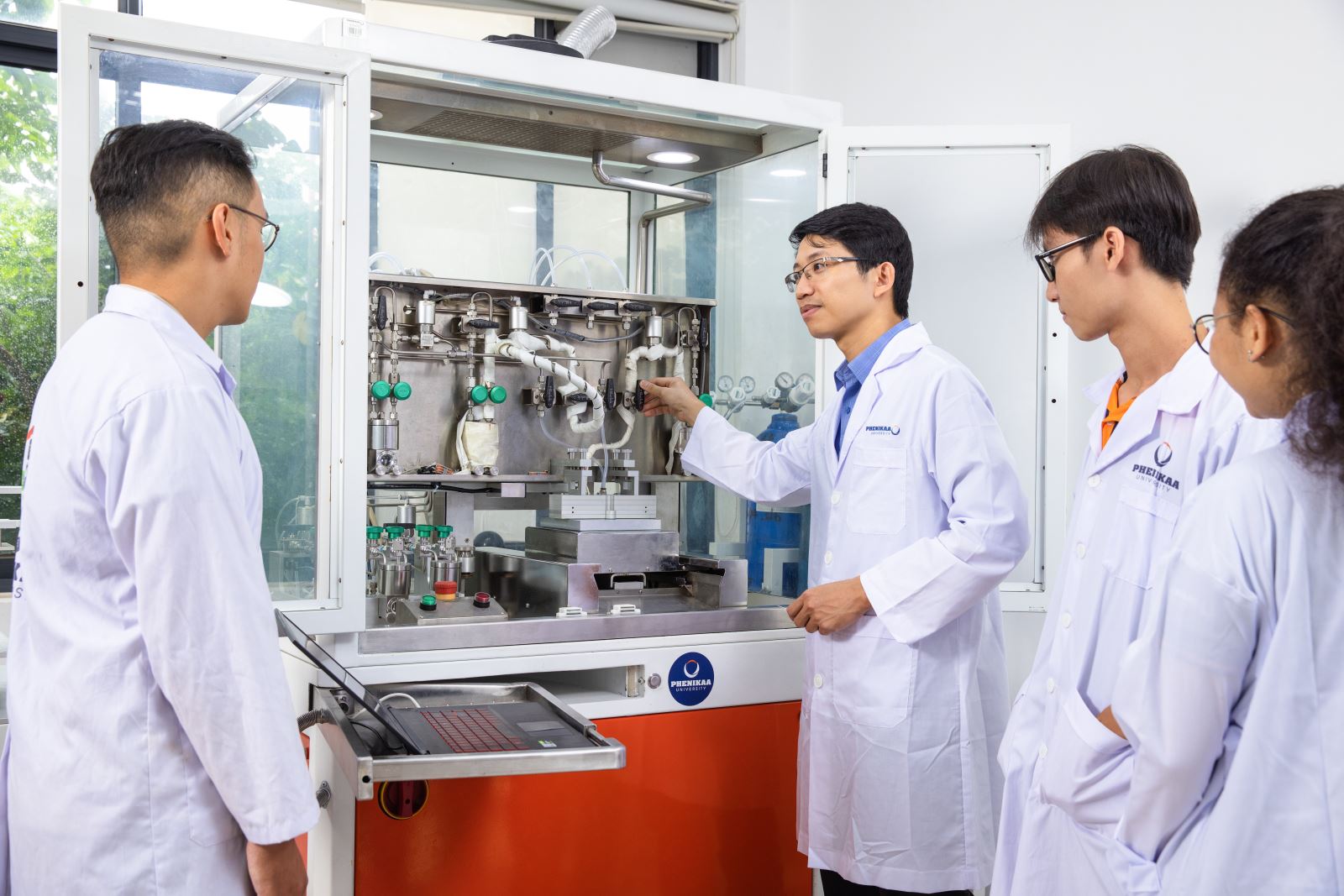
For the Vietnamese intellectuals abroad, it is necessary to form a network of "Global Vietnamese Scientists", applying the mechanism of "semi-repatriation": Guiding research, co-guiding graduate students, co-leading topics, sharing data and infrastructure through cooperation agreements. At the same time, it is necessary to have a reward regime based on results, ensuring intellectual property rights and joint publication, thereby bringing international knowledge to Vietnam in the fastest and most cost-effective way.
For the domestic training level, it is necessary to build doctoral and post-doctoral training centers associated with modern laboratories, prioritizing key fields: New materials, semiconductors - microelectronics, clean energy, biotechnology, biomedicine, safety, network security, artificial intelligence, quantum technology... Design training programs according to international standards, focusing on fundamental knowledge, but increasing the proportion of experimental practice, interdisciplinary projects and business connections. In particular, create a "fast-track funding" mechanism for outstanding young groups so that they can quickly produce outstanding results.
For students, it is necessary to arouse passion for science from high school; develop STEM clubs, student science research competitions, and open lab internships. Universities should also have some open days to welcome children and students to experience science. Along with that, scientific thinking needs to be planted early: Teaching how to ask questions, forming a critical spirit, encouraging people to dare to think, dare to do, and dare to take responsibility.
Localities need to have a mechanism to build science and technology museums and free libraries (instead of investing too much in entertainment centers). Only then will Vietnamese children love their homeland and be motivated. For the multi-layered strategy to be effective, we need a stable, long-term financial mechanism for young talent funds, strategic scholarships in priority areas, with a commitment to service and a transparent, competitive mechanism for using human resources after training. This is the way to turn the "golden population" into "golden knowledge".
Sustainable development of scientific culture and social responsibility
According to the spirit of UNESCO, sustainable development must be understood comprehensively: Economic development goes hand in hand with human development, cultural development and development of social operation. Science and technology are only truly meaningful when they serve people and for people. Dr. Nguyen Viet Huong believes that we cannot trade the living environment, public health and the future of future generations for short-term benefits.
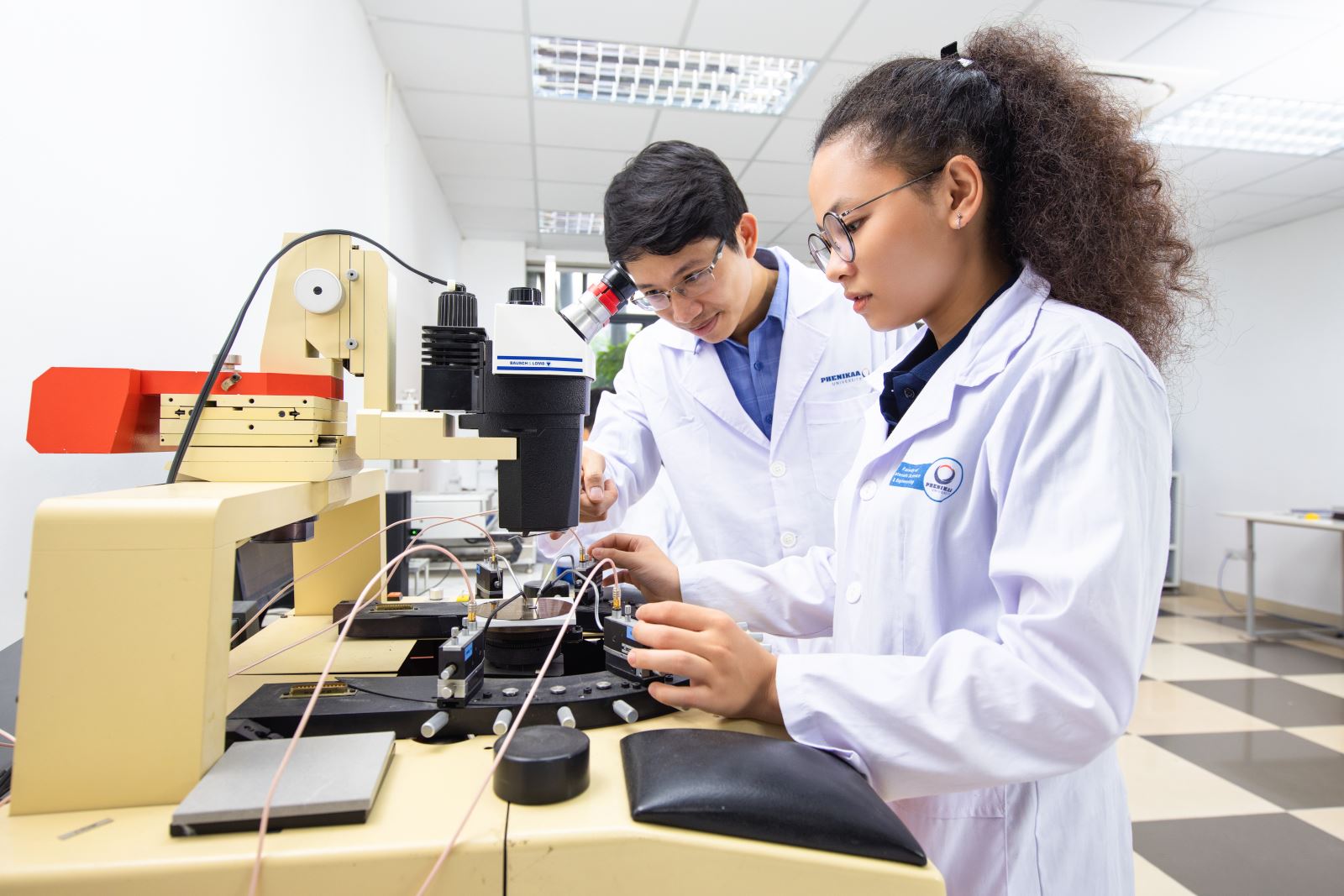
From a technological perspective, priority should be given to renewable energy programs (solar power, wind power, tidal power), modern safe nuclear power, smart grids, sustainable energy storage; promoting green chemistry, bio-materials, cleaner production processes; developing a circular economy, reducing emissions and increasing resource efficiency.
From a social perspective, it is necessary to build a scientific culture: Respecting the truth, promoting research ethics, transparency of data and results; protecting intellectual property rights along with responsible knowledge sharing. Domestic research and transfer efforts on atmospheric pressure atomic layer deposition technology, low-temperature functional materials, environmentally friendly surface treatment, etc. have shown that it is completely possible to innovate while optimizing energy and costs, contributing to promoting green, smart production right in Vietnam.
Technology transfer and international cooperation
Dr. Nguyen Viet Huong said that a common limitation is that research activities are fragmented, scattered, and lack convergence in strategic areas. Therefore, it is necessary to identify and steadfastly pursue national priority topic clusters in the next 10-15 years; build an innovation center linking "universities, research institutes, enterprises, and the state", co-funding with clear proportions and transparent intellectual property and revenue sharing mechanisms.
“International cooperation is the key to narrowing the technology gap. It is necessary to restore and expand large-scale national scholarship programs (upgraded 322 and 911 models), set a goal of training 10,000 PhDs or more in 5 years in key fields, connect with key laboratories in the world; implement mechanisms of co-instructing, co-leading topics, and co-owning patents. These cores will be the “knowledge shock troops” for the next 10-20 years of the country. I think this is a quick way to catch up with the world when our youth have the opportunity to study and research, and access the latest technologies abroad,” Dr. Nguyen Viet Huong shared.
General Secretary To Lam emphasized the need to build a generation of young people who are “courageous, progressive, intellectually excellent and imbued with cultural identity”. This is a strategic orientation to harmoniously combine integration and identity preservation, modern knowledge and traditional values, and professional capacity and social responsibility of young Vietnamese intellectuals.
“Developing science, technology, innovation and national digital transformation is not just a technical problem, but a strategic choice for the future. That future will be created by today's young generation. To do so, we need a long-term vision, courageous decisions and an ecosystem that nurtures resilient and honest talent.
The training of “Pure Heart - Bright Mind - Great Ambition”, for the goal of making Vietnam develop strongly, is not only a message from previous generations, but also a torch to light the way for Vietnamese youth in the new era. With faith and aspiration, with science, technology and culture, with innovation and a spirit of service, our young generation can absolutely make Vietnam break through, soon becoming a prosperous, humane and sustainable developed country in the middle of the 21st century”, Dr. Nguyen Viet Huong shared.
Source: https://baotintuc.vn/thoi-su/gop-y-du-thao-van-kien-dai-hoi-xiv-kien-tao-vang-tri-thuc-tu-chien-luoc-nhan-luc-da-tang-20251116111115908.htm


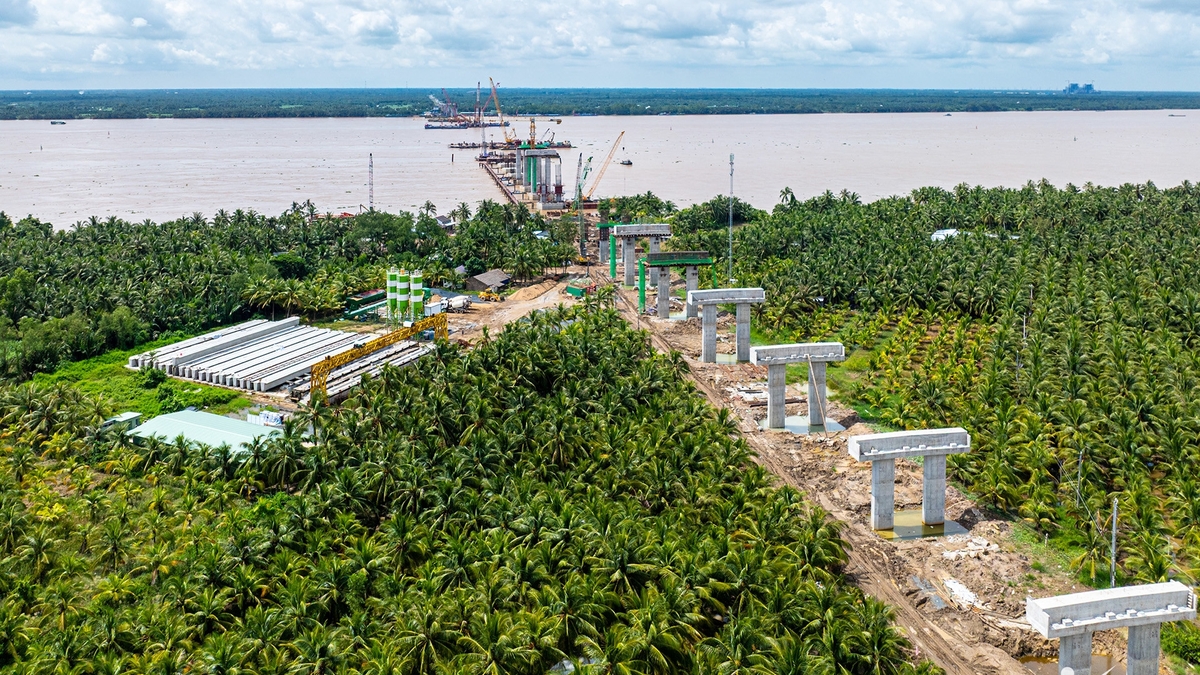




![[Photo] Prime Minister Pham Minh Chinh meets with representatives of outstanding teachers](https://vphoto.vietnam.vn/thumb/1200x675/vietnam/resource/IMAGE/2025/11/15/1763215934276_dsc-0578-jpg.webp)


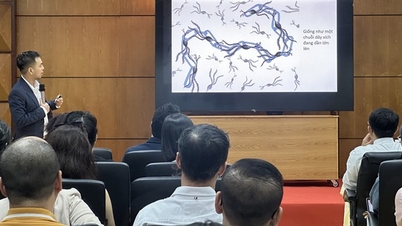









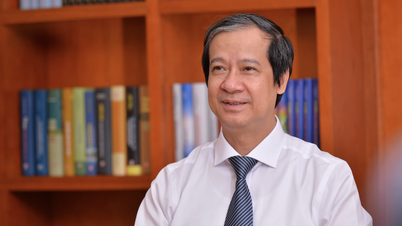





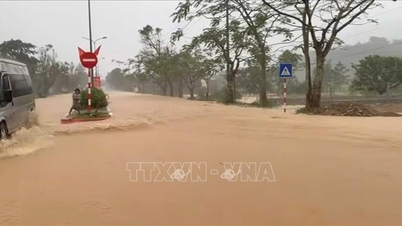
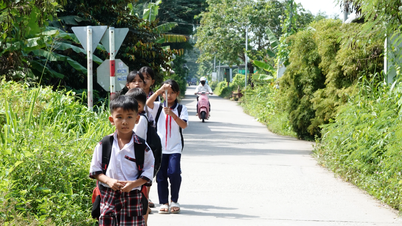





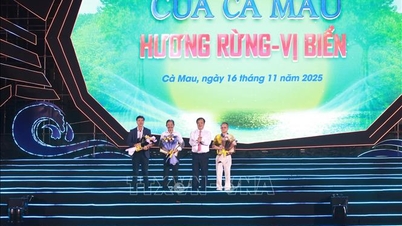
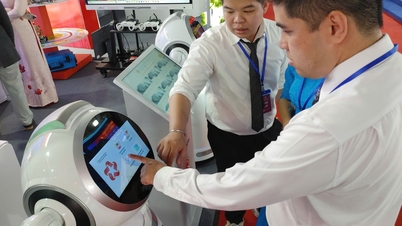
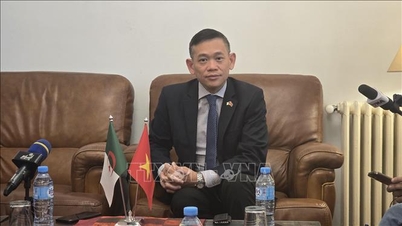
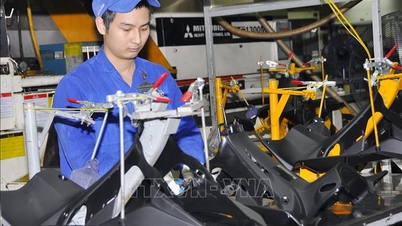
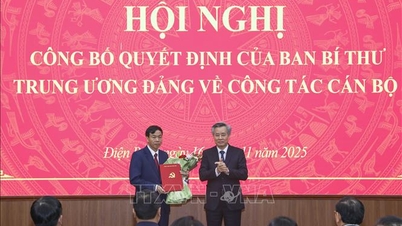



































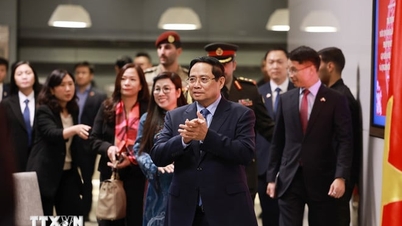


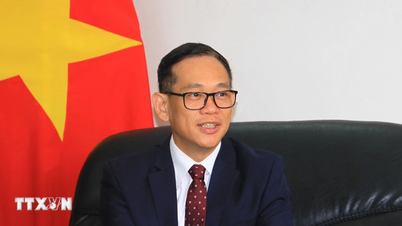





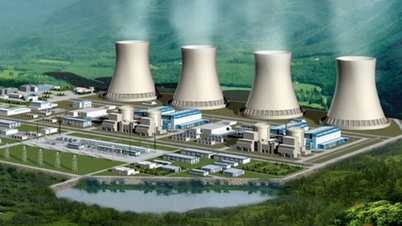


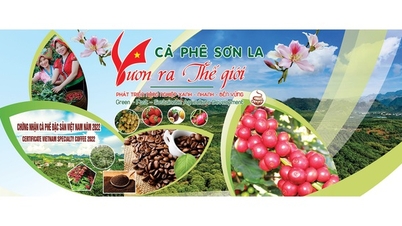
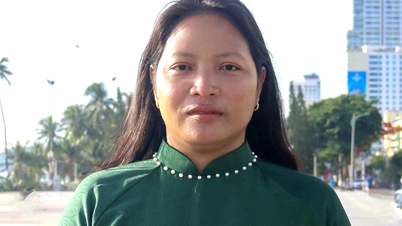


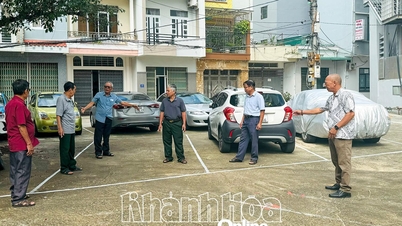



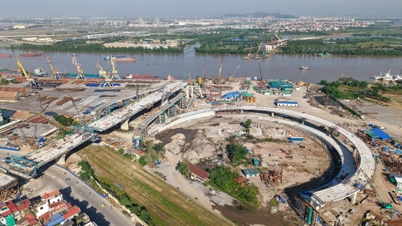











Comment (0)